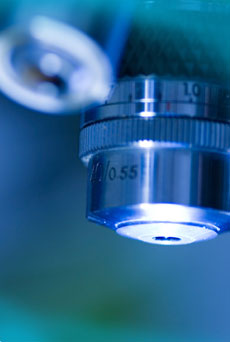The agriculture industry is facing ever increasing challenges that include soil health, sustainable production, fresh water supply, and nutrient feeding. Today’s food production largely relies synthetic fertilizers that are produced using fossil fuels and shrinking phosphate deposits. Alberta Agriculture and Forestry (AF) has developed a unique zero-waste nutrient recycling technology based on aerobic digestion, which is expected to help tackle some of these challenges by producing biologically active nutrients from organic wastes such as manure.
The nutrient recycling program is being piloted in greenhouse operations, where plants can absorb the nutrients while the water is remediated. Greenhouse crops have a tremendous capacity to absorb minerals and nutrients, and have been shown to be 20- to 30-fold better compared to field crops. This high nutrient absorption rate makes greenhouse food production an ideal means to utilize manure from intensive livestock operations.
The aerobic fermentation process currently utilizes poultry manure to produce nutrient solutions. It is an exothermic process which led to its coined description as “liquid composting”. The inherent thermophilic step serves to pasteurize the broth of common warm blood animal pathogens from the poultry manure, leaving only thermophilic microorganisms at the end of the process. It is hypothesized that these thermophiles increase the biological activity around the root zones of the plant, resulting in quicker and more robust growth. In addition, the suspended and soluble organics in the nutrient broth also serve to stimulate other microorganisms.
The open insulated vat (bioreactor) houses the fermentation process where manure is mixed into water and is oxygenated by an enriched gas stream. The broth is aggressively agitated with constant oxygen addition to avoid pockets of anaerobic activity. The bioreactor temperature is typically beyond 50°C for over a week; these temperature regimes serve to pasteurize the broth in reducing, if not eliminating, the pathogens. Broth temperature is cycled until a peak of ~ 70°C is reached. Future fermentation efforts will include elevating the thermophilic temperatures to eliminate avian influenza threats and refine the pH manipulation to minimize nutrient loss due to high pH induced precipitate (phosphate-cation) formation and ammonization.
Download program fact sheet: Nutrient Recycling
This unique ‘organic recycling’ of manure into plant nutrients to grow food was derived from AF’s aquaponics technology developed at Crop Diversification Centre South (CDC- South) in Brooks, Alberta. Aquaponics technology, the simultaneous production of plants and fish - relies on microorganisms to transform fish manure and excess feed into plant nutrients. Plant uptake of these nutrients serves to clean the water prior to its return to the fish, thus achieving 100% water recycling. This food production technology produces very little, if any, solid waste and zero wastewater. A successful two-year economic trial of aquaponics was conducted by a commercial greenhouse operation in Redcliff, Alberta.
Two outstanding phenomena were observed during Brooks’ decade long aquaponics operation. First, enhanced aquaponics plant growth, in particular root biomass, was demonstrated to be better in comparison to hydroponics. Second, there was no calcium or sodium buildup even though both were constantly added by means of fish feed. Consequently, water discharge was never required.
The aquaponics concept of utilizing microbial populations to generate plant nutrients was expanded by using poultry manure. A greenhouse tomato crop trial using poultry manure digestate was conducted at AF's Crop Diversification Centre North (CDC-North) in Edmonton, Alberta. Although very preliminary, AF tried to develop a robust microbial inoculum to allow the use of brackish water for food production. By incorporating natural ecosystem principles to integrate intensive livestock and greenhouse operations, we can produce high food yields while minimizing our environmental impact and use limited resources more efficiently.
For more information on Zero-Waste Nutrient Recycling Technology contact the project lead Marc Legault, with Alberta Agriculture and Forestry, Bio-Industrial Opportunities Section. | | 
Alberta Agriculture & Forestry
Bio-Industrial Opportunities Section
O.S. Longman Building
4th Floor, 6909 - 116 Street
Edmonton Alberta T6H 4P2
Phone: (780) 644-8118
Email: biobranch@gov.ab.ca

Bio Processing Innovation Centre - Grand Opening and Open House
September 21, 2017
1:00 - 3:30pm
5520 - 36 Street, Edmonton, AB
Click here to register. |